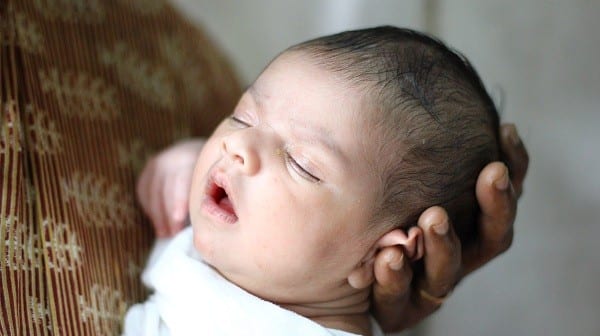Every day, babies born with complications – or very early – are whisked off to hospital neonatal intensive care units (NICUs) where they spend days, weeks, or months receiving specialized treatments. The end objective in every case is identical: to help the baby grow strong enough and big enough to ultimately go home with his parents.
Nutrition and the baby’s use of calories play a critical role in whether or not a NICU baby will go home. As neonatologist Dr. Harley Ginsberg of Ochsner Baptist hospital in Louisiana explains: when a baby’s calories are expended on crying and distress – for example, when parents cannot be there to soothe and cuddle their babies due to job or geographical constraints – that baby cannot use those calories to grow and develop his lungs and other vital functions.
But a special group of volunteers is working to ensure that NICU babies receive the cuddles that may make the difference between Life and death for these most fragile newborns. Volunteer baby cuddlers take shifts in the NICU to hold, comfort, and love babies when their parents are unable to be there.
Dr. Ginsberg says that the cuddles are medically beneficial. A baby’s blood pressure and vitals stabilize when he is cuddled, allowing his body to utilize the nutrients for growth. Baby cuddlers are directly responsible for the medical benefits their snuggles impart. Volunteer cuddlers go through background checks and training before they are allowed to commence their important work, but volunteer Bill Ferry says that cuddling a baby is pretty straightforward: “There’s no special technique needed. You just need to rock them and love them, and that’s about it.”
And while loving the babies is invaluable for the babies themselves, the attachment volunteers experience can leave them emotionally fragile. Ferry recalls the first baby he became attached to, saying that he was sad when the baby went home with his family. But the next baby he grew attached to never went home, so he vowed never to be sad when a baby went home again, although he still grows attached to every baby he cuddles. Other volunteers try not to learn personal facts about the babies, opting instead to “just rock them for the moment.” Not knowing whether a baby got to go home is easier, they say, than growing attached and then learning the baby experienced a sad outcome. But either way, one thing is certain: the babies were loved while they were in the NICU. And that makes all the difference.
Paradoxically, preborn children through all nine months of pregnancy can be killed in abortion in the United States. In fact, this is the default legal allowance per federal law; individual states must enact state-level restrictions on abortion. Texas, for example, prohibits abortion past the point of gestation at which a preborn child can feel pain (20 weeks)—a protection for the preborn which brings us one crucial step closer to the total eradication of abortion in our state. Shockingly, however, there are seven states, plus Washington, D.C., where there exists no limit on the age at which a preborn child can be killed in abortion (Alaska, Colorado, New Hampshire, New Mexico, New Jersey, Oregon, and Vermont). We look toward a day when all babies are cherished and cuddled, and never in danger of being killed because they were deemed “unwanted.”


